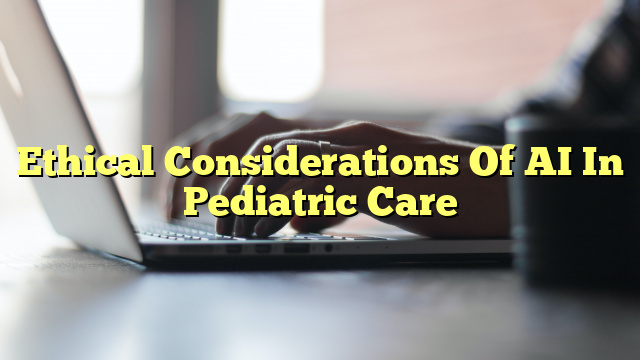Table of Contents
Ethical Considerations in Healthcare
When it comes to the use of artificial intelligence (AI) in healthcare, there are several ethical considerations that need to be taken into account. One of the main concerns is the potential for bias in AI algorithms. If the data used to train the AI system is biased, it can lead to unfair and discriminatory outcomes for certain patient populations.
Another ethical consideration is the issue of privacy and data security. AI systems often require access to large amounts of patient data in order to make accurate predictions or diagnoses. However, this raises concerns about patient confidentiality and the potential for data breaches.
Additionally, there is the question of accountability. Who is responsible if an AI system makes a mistake or provides incorrect information? Should it be the healthcare provider who used the AI system, the developers of the AI technology, or both?
Ethical Considerations in AI Development
In the development of AI technology, there are several ethical considerations that need to be addressed. One of the main concerns is transparency. It is important for AI systems to be transparent in their decision-making processes, so that healthcare providers and patients can understand how and why certain recommendations or diagnoses are made.
Another consideration is the need for ongoing monitoring and evaluation of AI systems. As AI technology continues to evolve and improve, it is important to regularly assess its performance and ensure that it is providing accurate and reliable information.
Lastly, there is the issue of accountability. Developers of AI technology have a responsibility to ensure that their systems are safe and effective. This includes addressing any biases in the data used to train the AI system and taking steps to mitigate potential harms.
Ethical Challenges in Pediatrics
When it comes to pediatric care, there are additional ethical challenges that arise. One of the main concerns is the potential for over-reliance on AI technology. While AI can be a valuable tool in diagnosing and treating pediatric patients, it should not replace the judgment and expertise of healthcare providers.
Another challenge is the issue of informed consent. In pediatrics, it is often the parents or guardians who make medical decisions on behalf of the child. However, if AI technology is involved in the decision-making process, it is important for parents to understand how the technology works and what its limitations are.
Lastly, there is the question of equity in pediatric care. AI systems should be designed and implemented in a way that ensures equal access and treatment for all pediatric patients, regardless of their socioeconomic status or other demographic factors.
Ethical Responsibilities of AI
AI technology has ethical responsibilities that need to be considered. One of the main responsibilities is to prioritize patient well-being. AI systems should be designed and implemented in a way that maximizes patient benefit and minimizes harm.
Another responsibility is to ensure transparency and explainability. AI systems should be able to provide clear explanations for their recommendations or diagnoses, so that healthcare providers and patients can understand and trust the technology.
Lastly, there is the responsibility to address biases and ensure fairness. AI systems should be trained on diverse and representative datasets to avoid perpetuating biases and to ensure equitable outcomes for all patients.
Conclusion
The use of AI in pediatric care has the potential to greatly improve patient outcomes, but it also raises important ethical considerations. These considerations include issues of bias, privacy, accountability, transparency, and equity. It is crucial for healthcare providers, developers, and policymakers to address these ethical challenges in order to ensure that AI technology is used responsibly and ethically in pediatric care.

